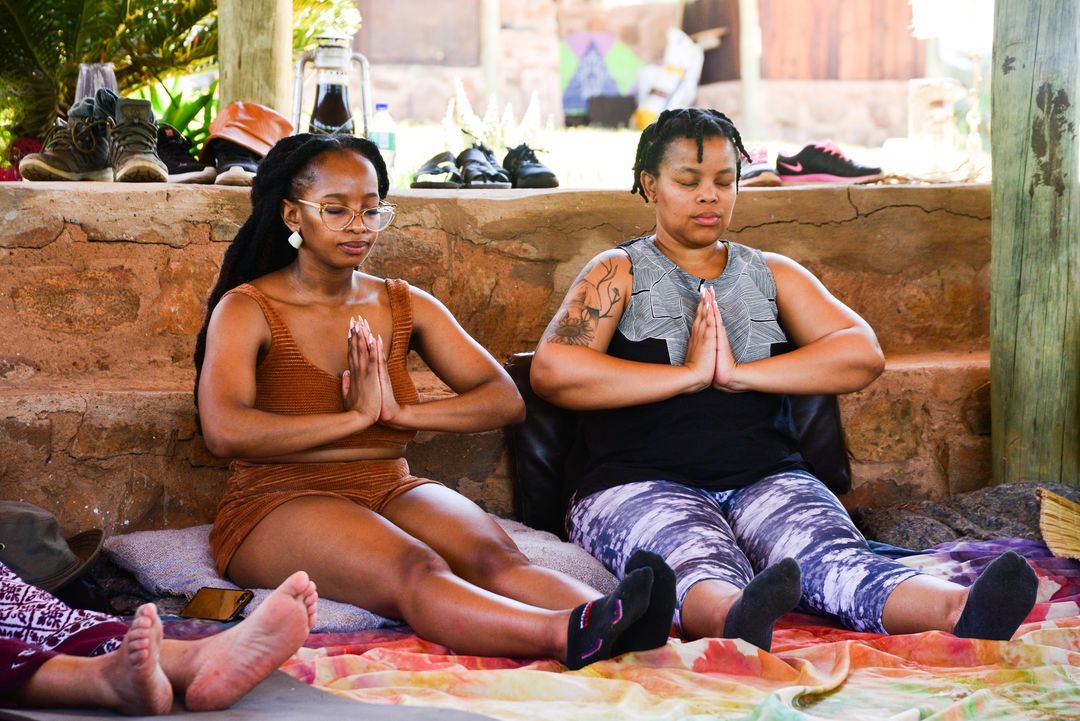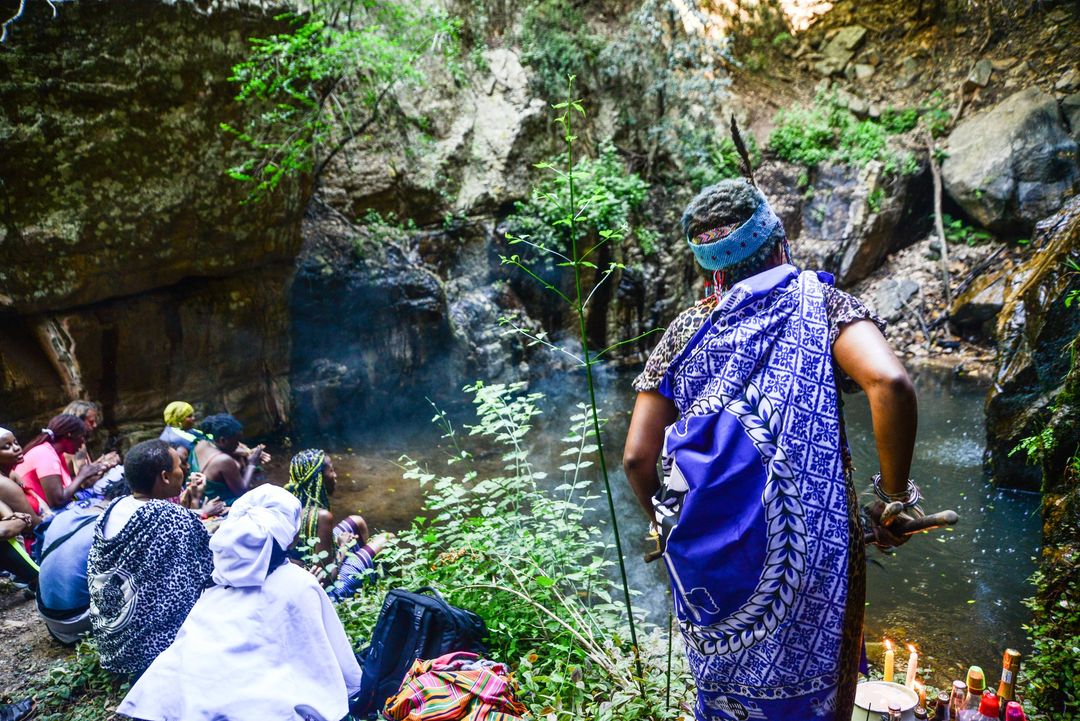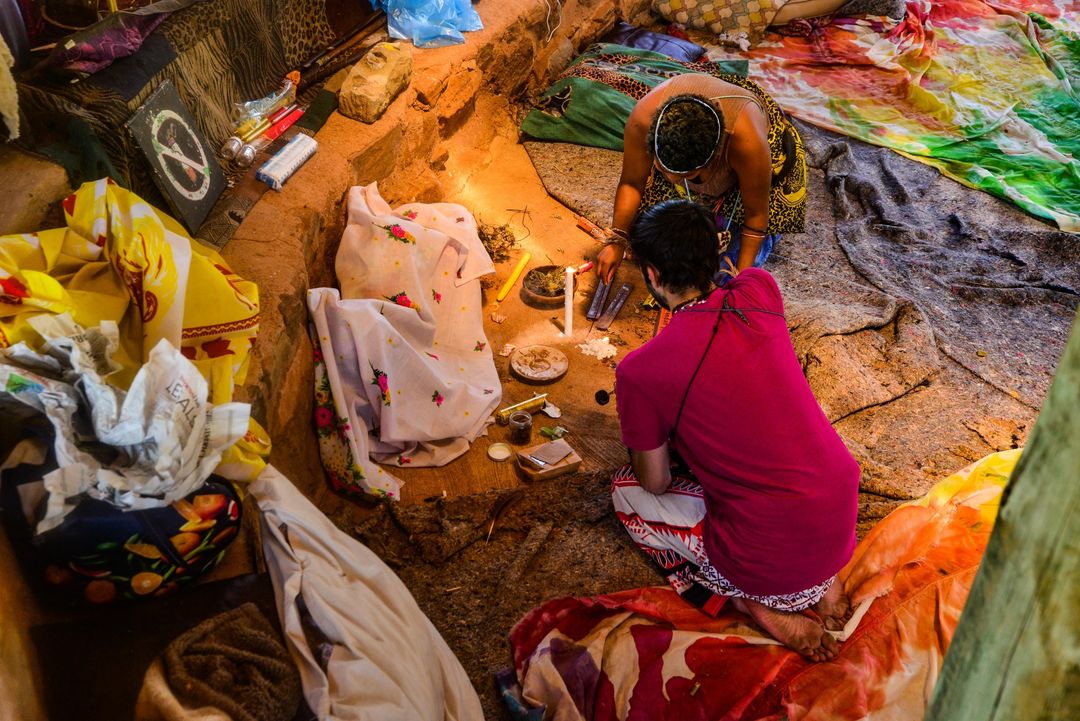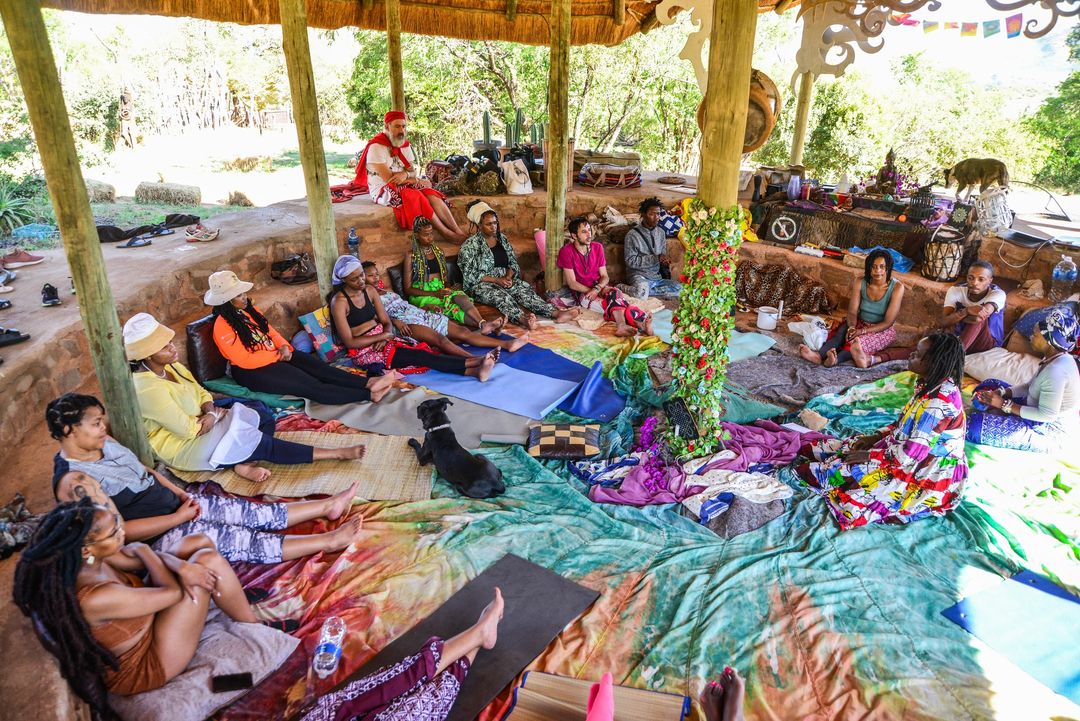We’re fortunate to live in an era where self-care is no longer stigmatized. Hair appointments, gym sessions and nail treatments are commonplace, but we still need to normalize caring for our souls as much as we do for our bodies. While it can often be hard to iterate or even identify, we know it takes a special kind of person to do ancestral work. I interviewed Makhosi Noentla Khumalo, the Sangoma and stylist behind Umsebenzi Wethongo (UW), the highly anticipated healing retreat established in 2022, happening again this May in Magaliesburg.
Firstly, I wanted to know what compels someone to do this kind of work. “My journey to becoming a Sangoma began with early experiences that led to deep introspection and healing,” shares Khumalo. “Losing my mother young propelled me on a path of self-discovery and taught me resilience. Searching for my healing I was led to a transformative awakening induced by a 10-day – silent Vipassana meditation retreat. Thereafter, guided by a wise healer, I embraced ubungoma, finding strength in ancestral connections.”
It was in the throes of her initiation in Mpondoland, that Khumalo resolved to establish, UW. She recalls, “Firstly, during my initiation, I was in a remote forest and isolated village, I discovered the profound stillness and power of nature. I wished others could experience this transformative calmness. Secondly, through the years in my divination practice, I noticed a gap between diagnosis and solutions. I wanted to bridge this gap by offering a crash course that imparts the discipline and confidence needed when interacting with the spiritual self.”
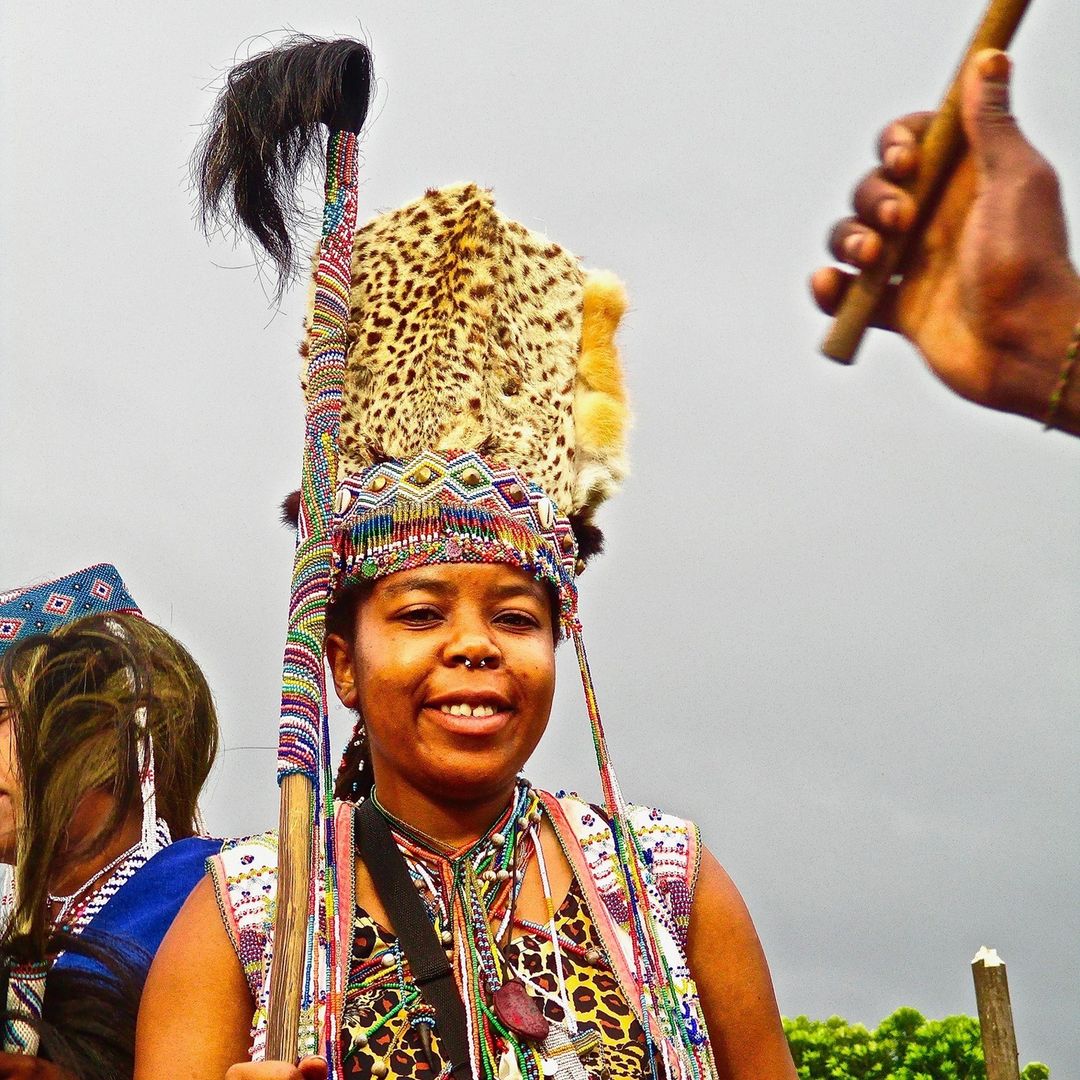
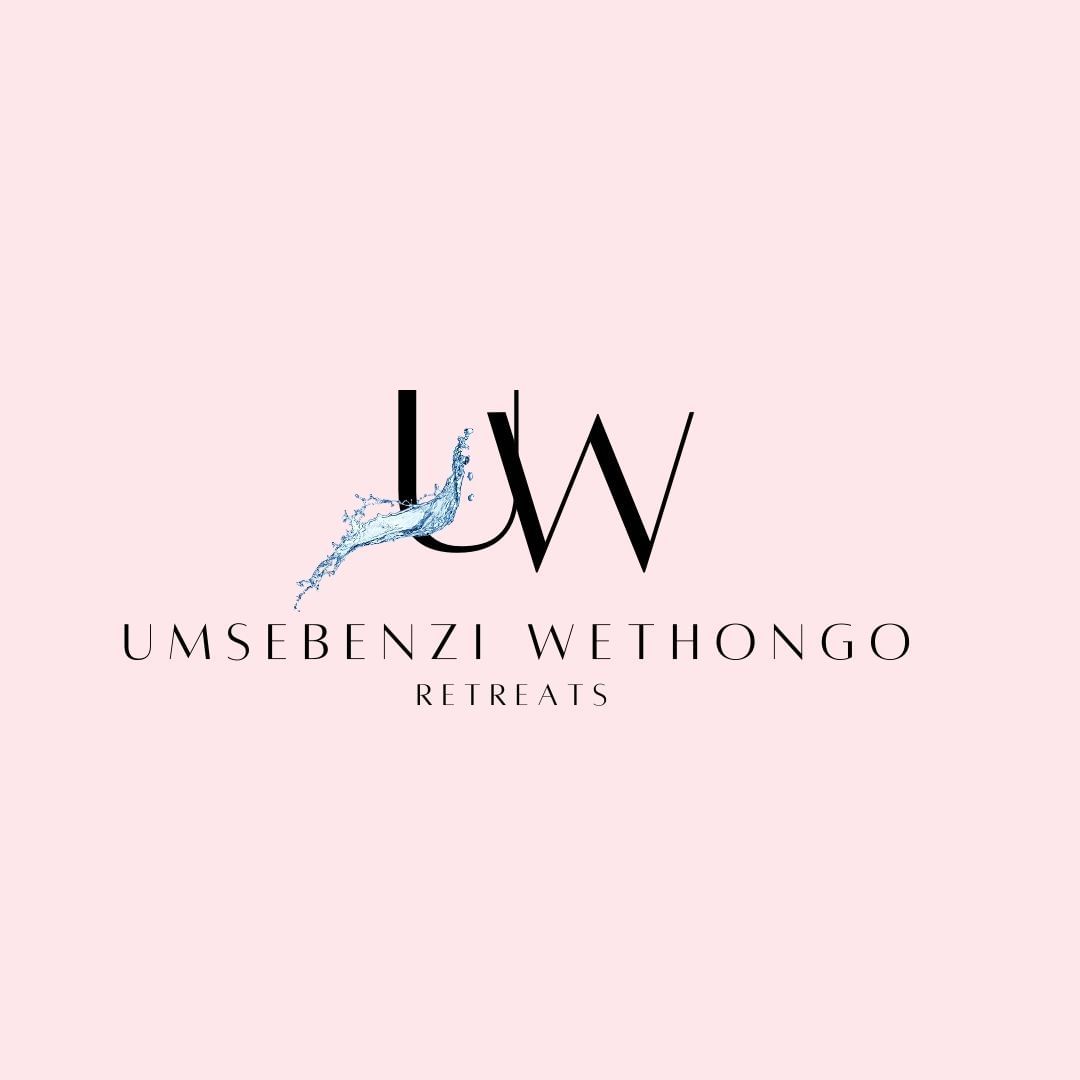
“Our ancestral wisdom is steeped in self-care and unity with nature, this is what informs the heart of UW retreats. We honour the ancient legacies by weaving these timeless principles into our offerings.” By curating this safe, inclusive space, UW encourages flexible approaches to traditional principles. Daily immersive experiences such as sacred rituals, shadow work, workshops tailored to lunar phases, plant and sound healing sessions, meditation, nature connection, journaling, and mindful movement, UW fosters well-being, purpose, and clarity.
The retreat will be particularly useful for creatives. Ancestral connection and healing are vital for personal and creative growth, as self-discovery can be linked to artistic freedom. Khumalo compares ancestral healing to untangling generational trauma, highlighting its liberating effect on creative individuals and trendsetters. To young Black creatives seeking to infuse spiritual wellness into their art, Khumalo advises creating a sacred space for creative work, prioritising mindfulness, gratitude practices, and rituals honouring ancestral connections.
Scientists have long suggested that creative activities and spiritual practices reduce stress and improve well-being. For example, fashion allows self-expression and boosts confidence, while art therapy can foster psychological healing. As a cultural worker and healer herself, Khumalo is an expert at letting the intersectionality of her identity inform her approach, blending the deep reverence for ancestral wisdom with a cool creative flair. “The creative landscape in South Africa is a living testament to this fusion,” ruminates the sangoma.
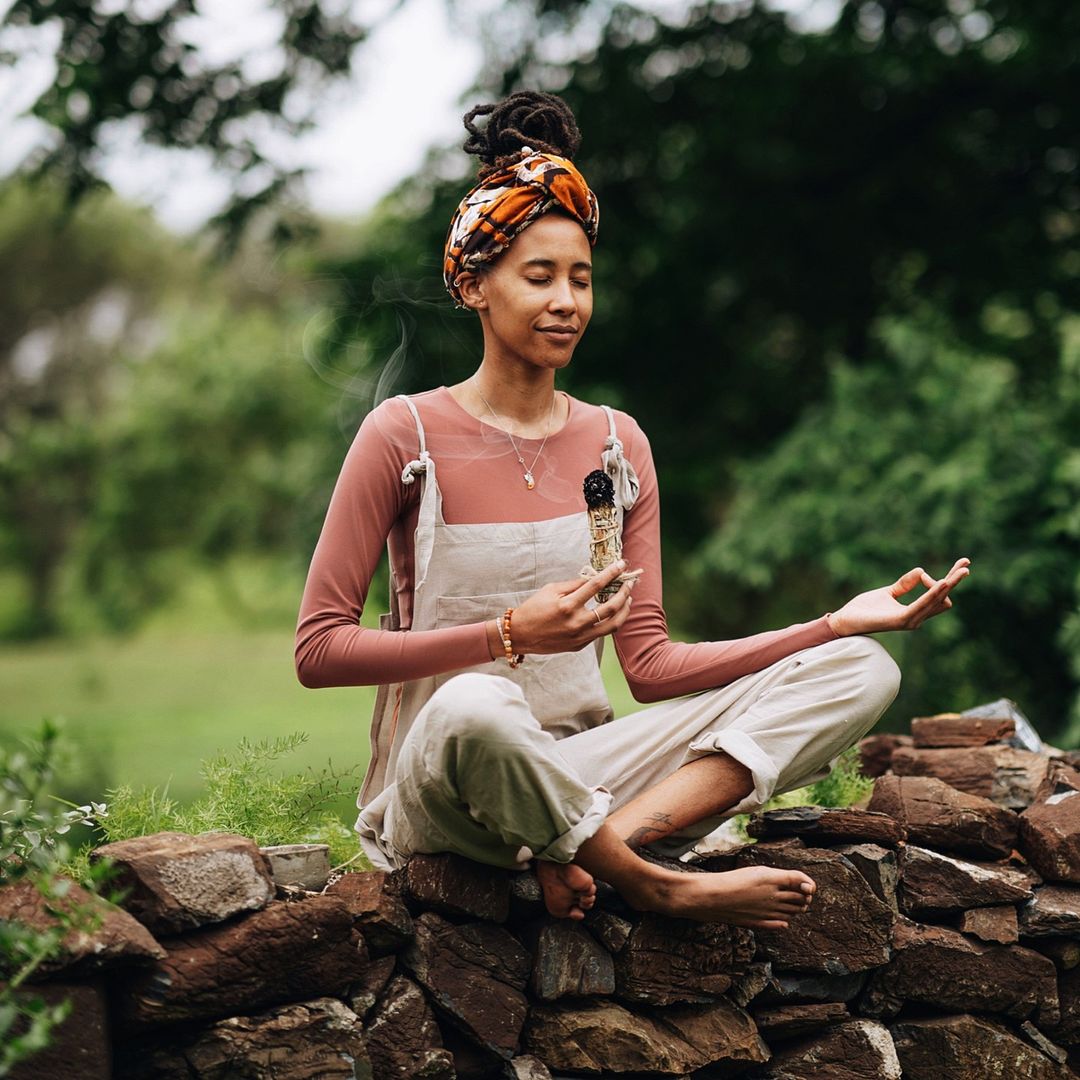
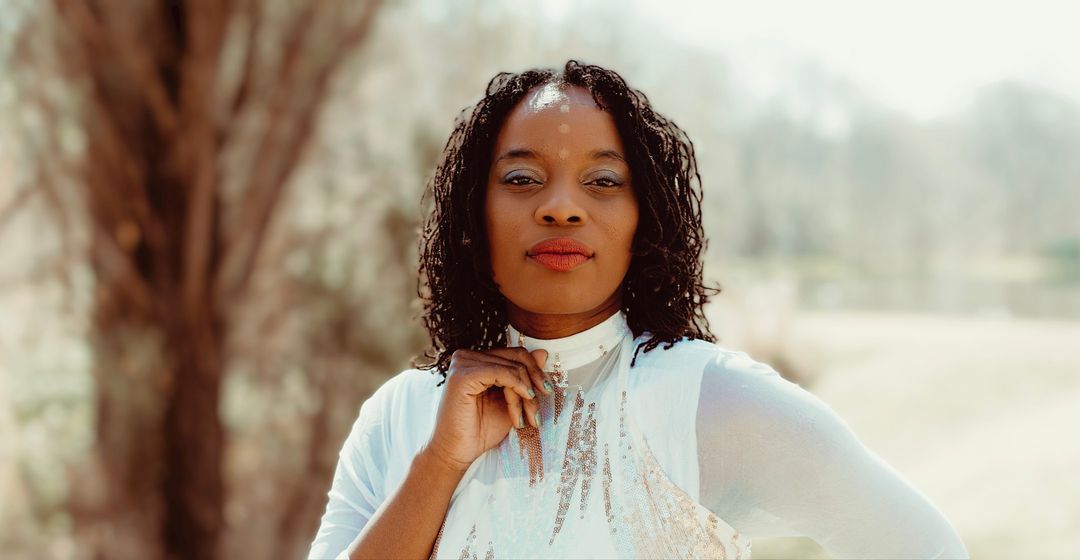
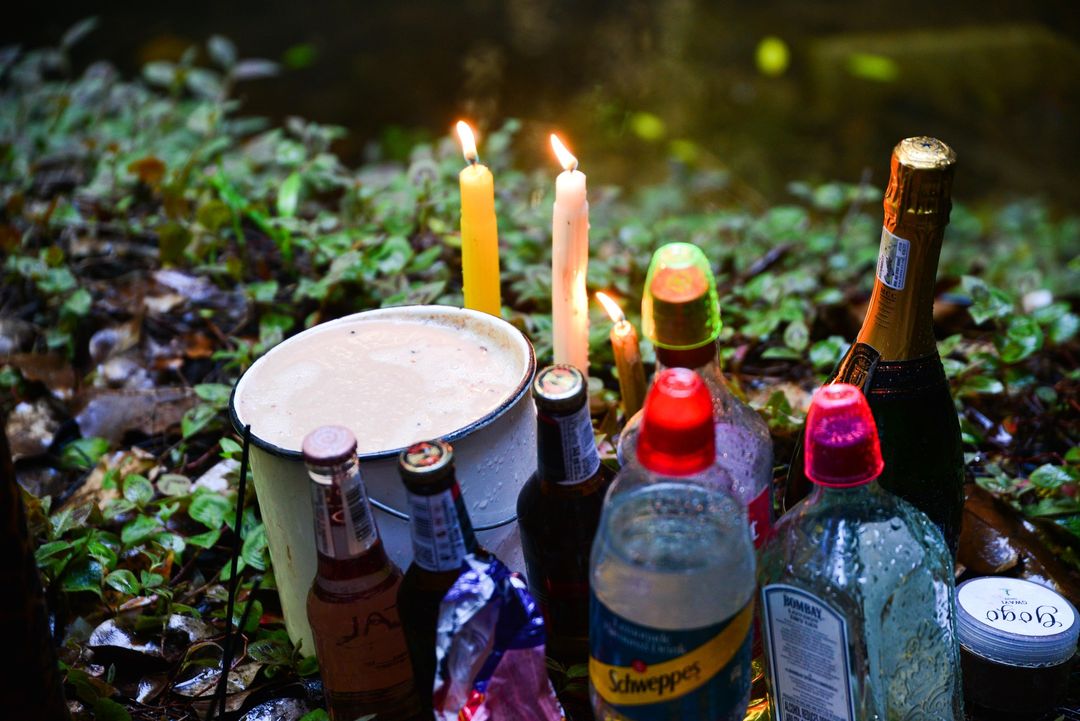
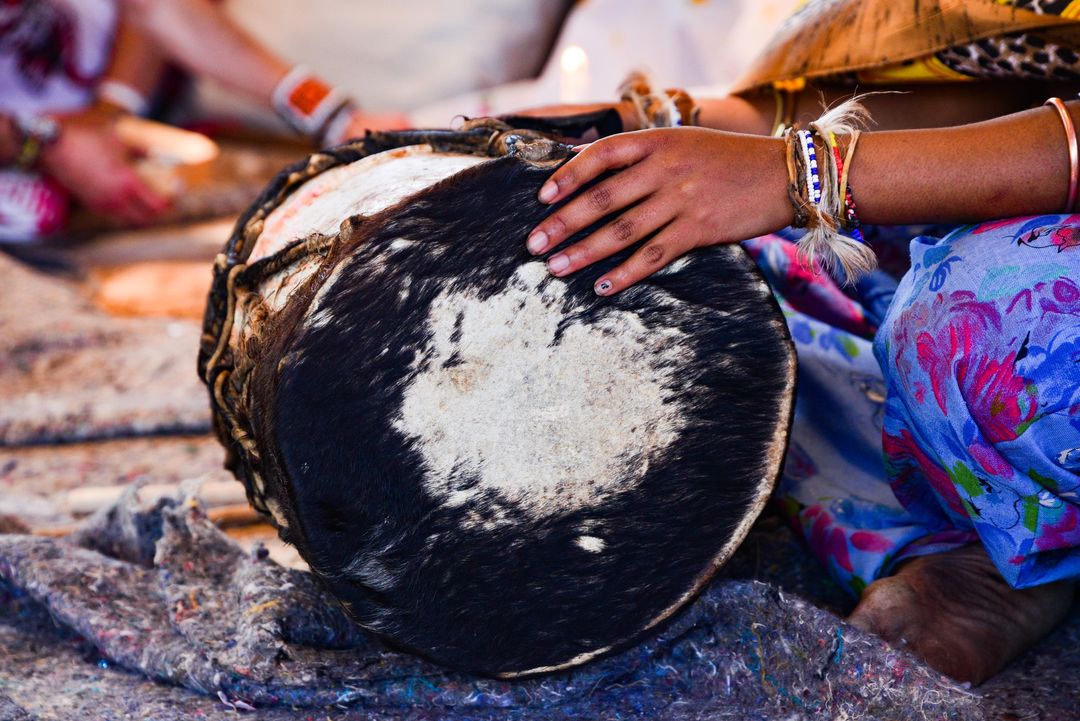
“Our inherent creativity, not only intersects with spirituality but embodies its essence, propelling us forward through time. … we not only preserve our heritage but it also serves as a guiding light for future generations. Consider the enduring legacy of icons like Brenda Fassie, Busi Mhlongo, Alf Khumalo, Lebo Mathosa, and Mandosini whose spirits resonate powerfully through the works of emerging artists. This continuum of creativity not only honours our artistic heritage but also ignites new paths forward, bridging the past with the present.”
Of course, ancestral work is just one of the possible avenues that could lead to personal and communal improvement, but its generative quality has the potential to open countless other avenues. As the custodian of such a rich ancestral legacy, Khumalo envisions a future where African spirituality and indigenous healing practices experience a revitalisation, driven by the new generation’s thirst for old knowledge, authenticity and rootedness. She foresees a time characterised by a deepening connection to ancestral wisdom and holistic healing modalities.
Umsebenzi Wethongo is an invitation to connect more intentionally with our wonderous legacies because even though we know we’re innately spiritual and connected to a divine heritage, staying connected can be tough. The fact that our surroundings have so many opportunities for realignment is cause for cognisance. “Embrace your journey with openness and self-compassion,” Makhosi urges, encouraging us to trust in ourselves and our ancestral guidance, powerful potential paths towards holistic well-being and cultural pride.
For more information, please email amathongoretreats@gmail.com or click here to follow UW Retreats.
